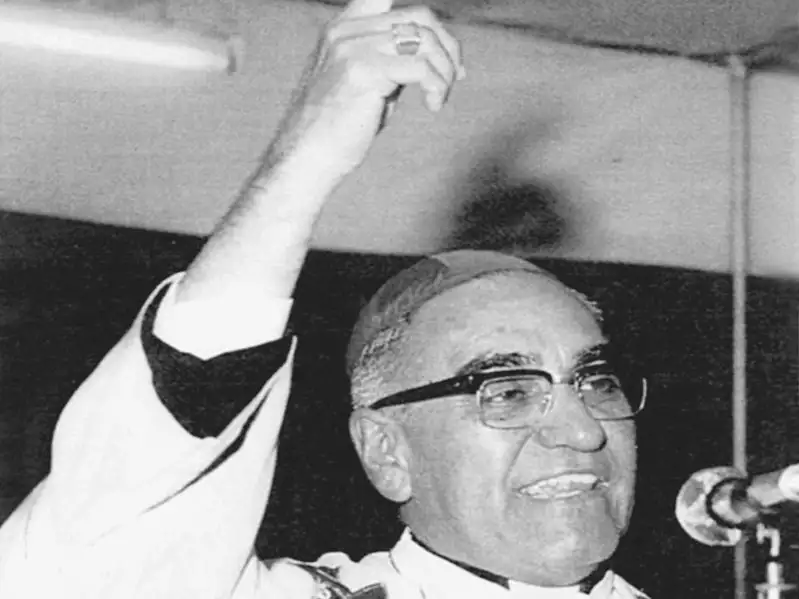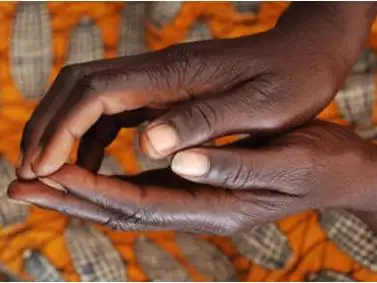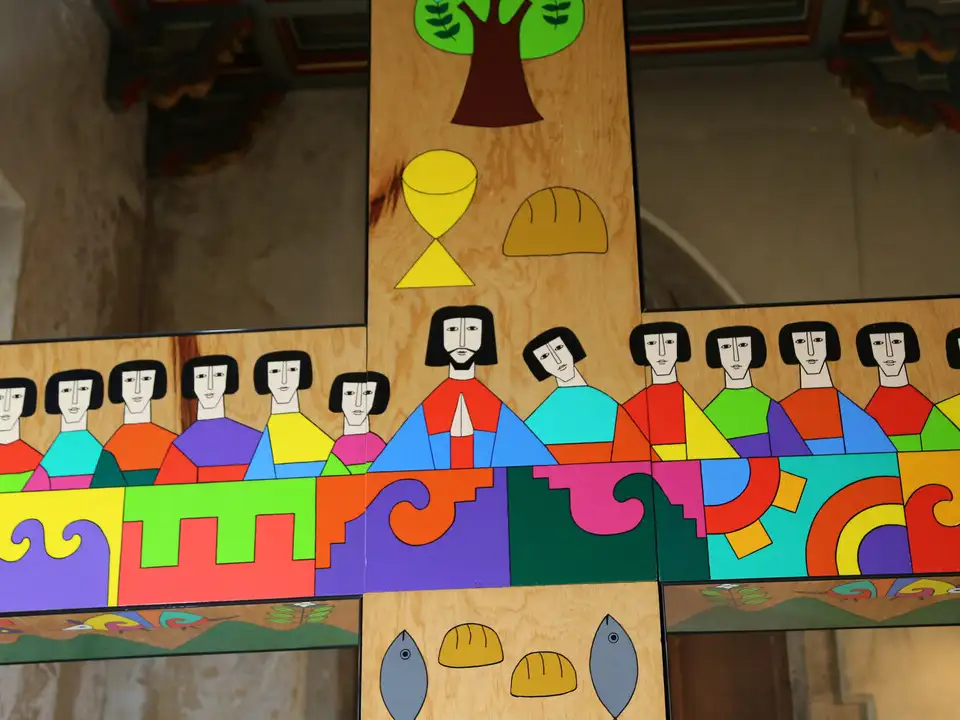A timeline of information about Oscar Romero's life from his birth in 1917 in El Salvador to his martyrdom in 1980 and canonisation in 2018.
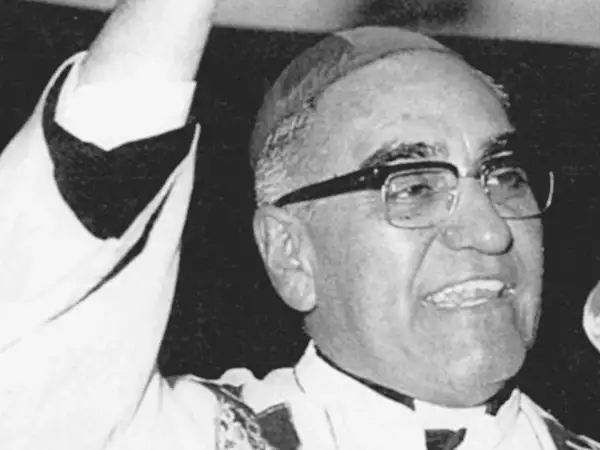

Archbishop Oscar Romero preaching
Saint Oscar Romero worked tirelessly to be a voice for the voiceless. He understood that he could fight injustice through the simple act of sharing knowledge, passing on information and speaking the truth. And he realised the most powerful tool he had to do that with was radio.
Romero would broadcast his homilies all across El Salvador every week, so people in every part of the country and in all walks of life could hear the truth about the organised violence and governmental corruption ravaging the country at the time.
When his radio station was bombed, we helped to rebuild his radio station so he could continue his vital work.
We can take inspiration from Saint Romero’s radio broadcasts as we face the challenge of coronavirus.
Today, radio is still a crucial tool used by local experts across the world to provide life-saving information to people who can’t rely on newspapers, who don’t read, or who can’t trust the information sources otherwise available to them.
Your support is helping us to reach the most vulnerable throughout Latin America and Africa through the radio – providing trusted information and helping more people to survive this crisis.
El Salvador
Radio is very popular across Latin America – in both Spanish and Portuguese, but also in local and indigenous languages. In Romero’s home country, we are working with Ana Maria, a local communications expert who runs the community radio station in Guaymango, in the west of El Salvador.
Though the station is usually used to share weather warnings and let farmers know the best times to plant their crops, now DJs like Ana Maria are using their platform to spread life-saving messages about preventing coronavirus.
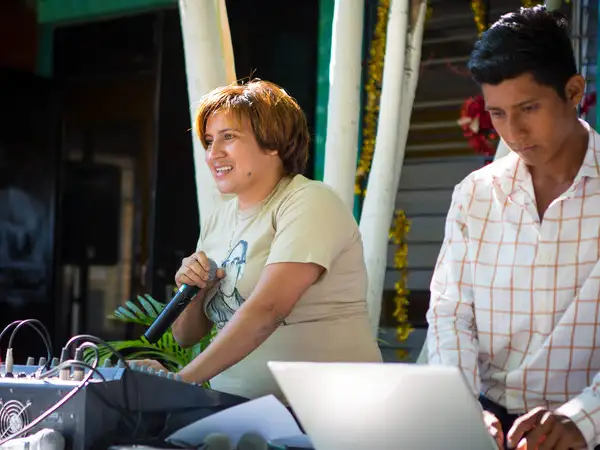

Ana Maria is a DJ at Radio Copinula in Guaymango. The community radio station gives people advice on farming, weather warnings and encourages women to stand up for their rights.
Guatemala
There are 22 different indigenous languages in Guatemala. We have been working with the indigenous radio stations here to ensure key health messages are broadcast in local languages and reach vulnerable groups.
Ecuador
The Radialistas Apasionadas or “passionate radio women” broadcast across Latin America from Ecuador and other Spanish speaking countries. They provide free programmes to hundreds and thousands of community and Church-run radio stations. As well as a whole series on coronavirus prevention, they’ve also been sharing messages of hope and encouraging listeners to think about the kind of world that we can rebuild after coronavirus.
Uganda
Bishops and other faith leaders and organisations are running radio messages on Catholic and national radio across Uganda. Funded by your donations, listeners are given trusted information on preventing the spread of coronavirus such as staying at home, regular hand washing and avoiding social gatherings.
The messages also ask listeners not to discriminate against people who have recovered from coronavirus and to pray for the end of the pandemic in hope and solidarity with each other.
Sierra Leone
In Sierra Leone, we are building on the work done fighting Ebola and have mobilised faith leaders across the country to spread the message of prevention. We have radio jingles going on community radio stations, and we recently started a show where we have one Christian and one Muslim faith leader go onto the show and talk about the information.
We need to counteract the false information, because that can spread faster than the real information. We are making sure people get the real information.
South Sudan
Local organisations in South Sudan are delivering radio messages to inform communities about the hygiene measures that can stop the spread of the virus. In harder to reach areas, where we can’t use radio, we are broadcasting the same messages locally, with megaphones.
These community groups are making sure that the messages are adaptable, and translated into local languages. We can also broadcast information and advice around domestic violence, which has risen during lockdown.
Your support also allows us to communicate life-saving information over the radio in Honduras, the Democratic Republic of the Congo, Kenya, Liberia, Niger and Zimbabwe, helping more vulnerable communities to prevent and survive coronavirus.
Find prayer resources to celebrate the life of Saint Oscar Romero.
If you are planning a visit to the Saint Oscar Romero shrine, at Southwark Cathedral, we have resources to help you pray and reflect.


